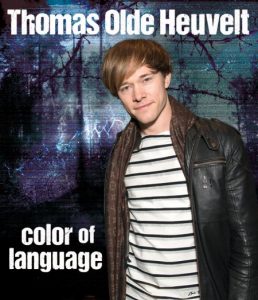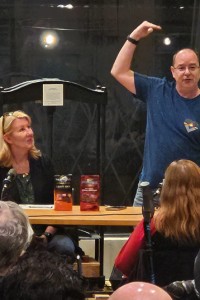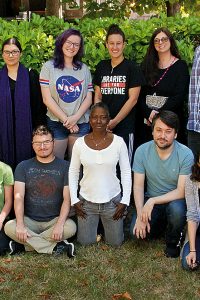Thomas Olde Heuvelt: Color of Language

Thomas Olde Heuvelt was born April 16, 1983 and grew up in Nijmegen in the Netherlands, about an hour outside Amsterdam. He attended university in Nijmegen and spent a year at the University of Ottawa in Canada. He studied American literature, English language, and American Studies.
His first novel De Onvoorziene, written as a teenager, was published by a Dutch small press in 2002, and followed by PhantasAmnesia (2004). With Leerling Tovenaar Vader & Zoon (2004) he moved to a large commercial publisher; that was his breakout book in Holland, and was followed by Harten Sara (2011) and HEX (2013). HEX is his first novel translated into English, and appeared in the US and UK in 2016. It has since been sold to 19 countries, among them Japan, China, Brazil and France.
Some of his short fiction has also been translated, notably Hugo Award finalist ‘‘The Boy Who Cast No Shadow’’ (2011), Hugo and World Fantasy Award finalist ‘‘The Ink Readers of Doi Saket’’ (2013), and Hugo Award-winning novelette ‘‘The Day the World Turned Upside Down’’ (2014).
Olde Heuvelt now lives in Den Bosch in the Netherlands.
‘‘Olde Heuvelt is a double last name – in an old Dutch dialect it means ‘Old Hill.’ When I sold HEX in English I wondered if I should take a pseudonym, like ‘Thomas Old Hill,’ but you already have a horror writer named Hill and I’m actually younger than him, so I decided to stick with it.
‘‘My mom and my sister were big readers, but my uncle and my grandpa were my storytellers. They told me creepy stories that kept me up at night. My uncle told me Bram Stoker’s Dracula as a bedtime story when I was seven years old. Also The Witches by Roald Dahl. That was my favorite children’s novel. He first told me the story, then I read it, and then saw the movie with Anjelica Huston. It totally freaked me out.
‘‘I started writing stories when I was eight. I remember being in the bookstore as an 11-year-old kid, in the Netherlands, looking at these shelves with translations of Stephen King novels. I knew all of the covers by heart because my mom thought I was too young to read the actual books. I thought to myself, ‘When I grow up I want to be like that, on the shelves at the bookstore, writing creepy novels.’ Ever since, I’ve pursued everything to make that happen, and it’s worked out.”
…
‘‘HEX is the first novel of mine that’s been translated. It was originally set in Holland, and I chose to change the setting for the English-language edition. HEX is a creepy book, and when it came out in Holland I got hundreds of messages from readers who told me, ‘You bastard, I had to sleep with the lights on.’ Imagine how much I dig that. That’s exactly what you want as a horror writer. I wanted to get the same messages from readers in America and Britain. In order to really scare your reader in a novel, you need to create this perfect sense of familiarity, to suck the reader in, and then you tear it apart when the supernatural kicks in. If I’m reading a book set in a country I don’t know much about, say, Senegal or Azerbaijan, I’d be wondering, ‘How do you pronounce their names? What’s the norm for these people? What’s not the norm? What scares them? What does not?’ That creates distance. I figured American readers would experience the same in a novel set in the Netherlands. I didn’t want that distance; I wanted that perfect sense of familiarity. Had it been a fantasy novel or a science fiction novel it would have been different – in those genres, the feeling of estrangement is great. But in horror, where the first goal is to scare your reader, you need that familiarity. So that’s why I decided to change the setting.
‘‘Rewriting a novel to an American setting is a lot more than changing names and places and using Google Earth. The entire cultural heart changes. I actually went to upstate New York, to the Hudson Valley where it’s set now, to do research. The region has a lot of Dutch history. It’s where the first Dutch settlers came on the journey to the promised land, where they met the perils of the undiscovered Americas, and where they settled and traded furs with the natives and fought wars with the English. I enjoyed capturing that Dutchness in the book. I also chose this region because it’s the breeding ground of the Gothic novel – it’s where Washington Irving is from, ‘The Legend of Sleepy Hollow’, and the birthplace of Nathaniel Hawthorne, ‘Young Goodman Brown’. Especially in our modern day and age, it’s exciting to realize that this place is so close to New York City, which is like the most cultivated place on Earth. I’ve experienced this first-hand. One time, I spent a night in a New York hotel overlooking Central Park North. I saw Manhattan, and the George Washington Bridge in the distance. Beyond that, there were rocks sticking out of the Hudson River, and beyond that, countless hills and forests – this vast wilderness. The contrast is spectacular: there’s this extremely big city where everything happens, but it’s right on the edge of this wilderness. It’s that exact wilderness where the stuff from the classic gothic tales happened. It was the perfect setting for HEX.”
…
“When I read the translation of HEX, I felt the original ending was off, and that I could make it much creepier if I could be more subtle. I changed the last four chapters of the book, like 15,000 words or something. They’re totally different in the American version. And because I was so much into the editing process by then, I figured, why not try writing it directly in English? It was the first time I’d written new fiction in English. It worked well. It paid off. I’ve been experimenting with writing a few short stories in English, and it’s going quiet well. It would make things a lot easier, I can tell you that.
‘‘You know, I never dared to write in English before, because I didn’t feel confident, even though I studied English language and lived in Ottawa for a year. It’s not my native tongue. There’s so much to a language you don’t get when you’re not a native speaker. You really have to live in a country for a couple of years to grasp the nuances, and then you’re stylistically different as well. That’s the color of language.”
…
‘‘The Netherlands doesn’t have a long history of fantastic literature. There used to be a magazine that published SF in Dutch, but they went out of business. There’s an annual short story contest in the Netherlands, which is really good, but we don’t have a lot of options for publication of short fiction. Every now and then there’s an anthology, mostly small press. It’s because of our history. Our literature’s very Calvinistic, very psychological. Most Dutch literary novels are basically long interior monologues, unlike American literature, which is much more driven by storytelling, by plot. There’s a reason why I studied American literature and not Dutch literature. It’s much more exciting, even when it’s not genre literature. I stood out in the beginning as one of the first Dutch authors writing in this genre. There’s one other bestselling fantasy author in the Netherlands. His name is Adrian Stone, and he’s writing fantasy series and doing really well. Everything else is small press or self-pub.”
…
‘‘I’m halfway through the next book. It’s a possession novel. I always wanted to write a possession novel, but change the key element. What I don’t like about possession novels is the religious aspect – there’s a demon or a devil or an evil spirit who possesses a person and a priest comes to exorcise it. I’m a mountain climber, and whenever I’m in the mountains, I feel them as if they are living beings. I’m not a very spiritual person, but other mountaineers have come down with similar stories. Each mountain has a very different soul than another mountain. They seem places of power. So I thought, ‘Wouldn’t it be great to have a guy who’s possessed by the soul of a mountain? To have this force of nature-gone-bad raging inside of him?’ It will be exciting, and it will be creepy, I promise you that.’’
Read the complete interview in the December 2016 issue of Locus Magazine. Interview design by Francesca Myman.








Translators of books are understandably miffed when their names are left out of reviews, especially when the review makes such a point of the fact that the book has been translated, as this one does. You might therefore be interested to know that the translator of this book (me) is a native speaker of American English from the East Coast who lived for years in the Hudson Valley, so she was able to help Thomas shift the action from Holland to New York and also helped him get the new English ending right. A worthy project.